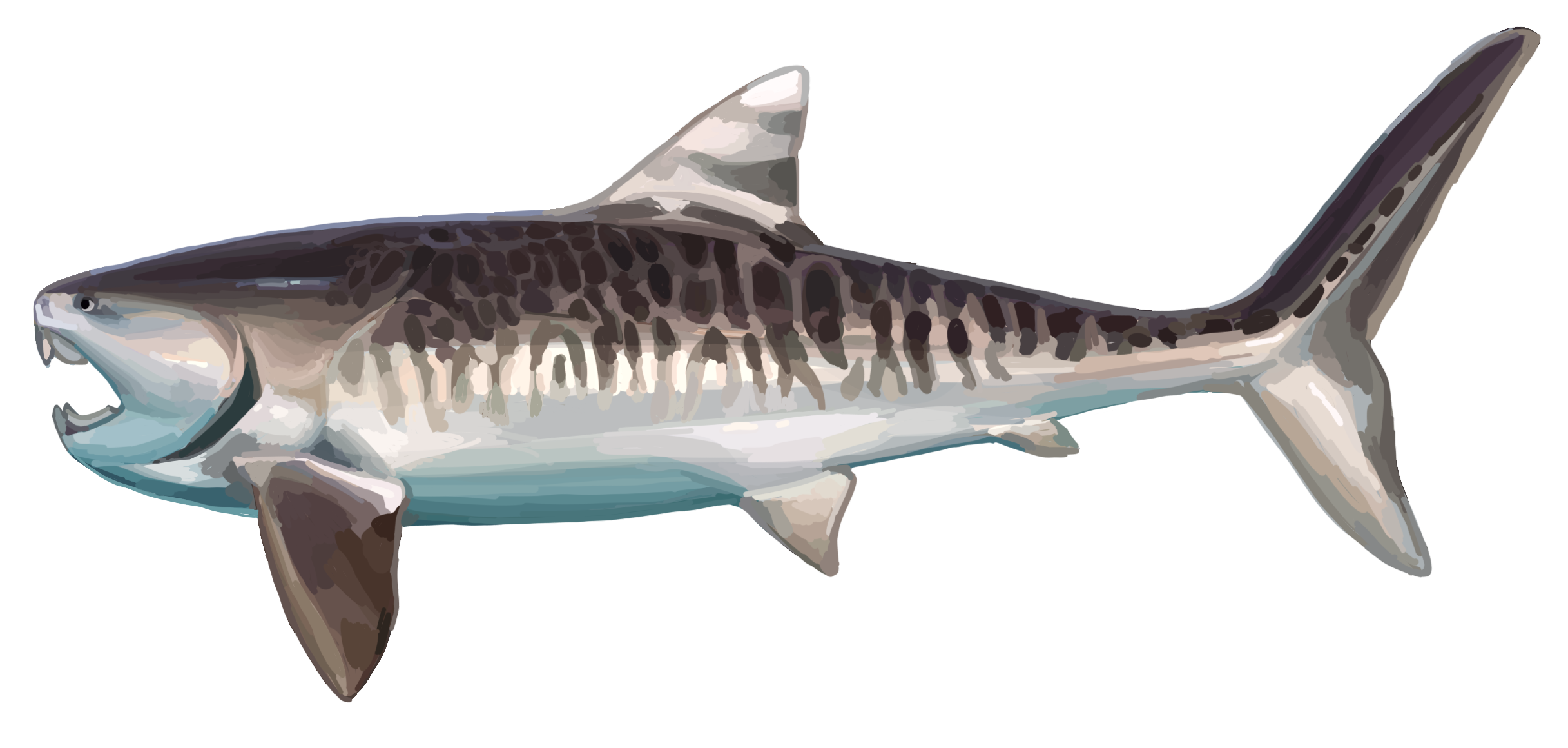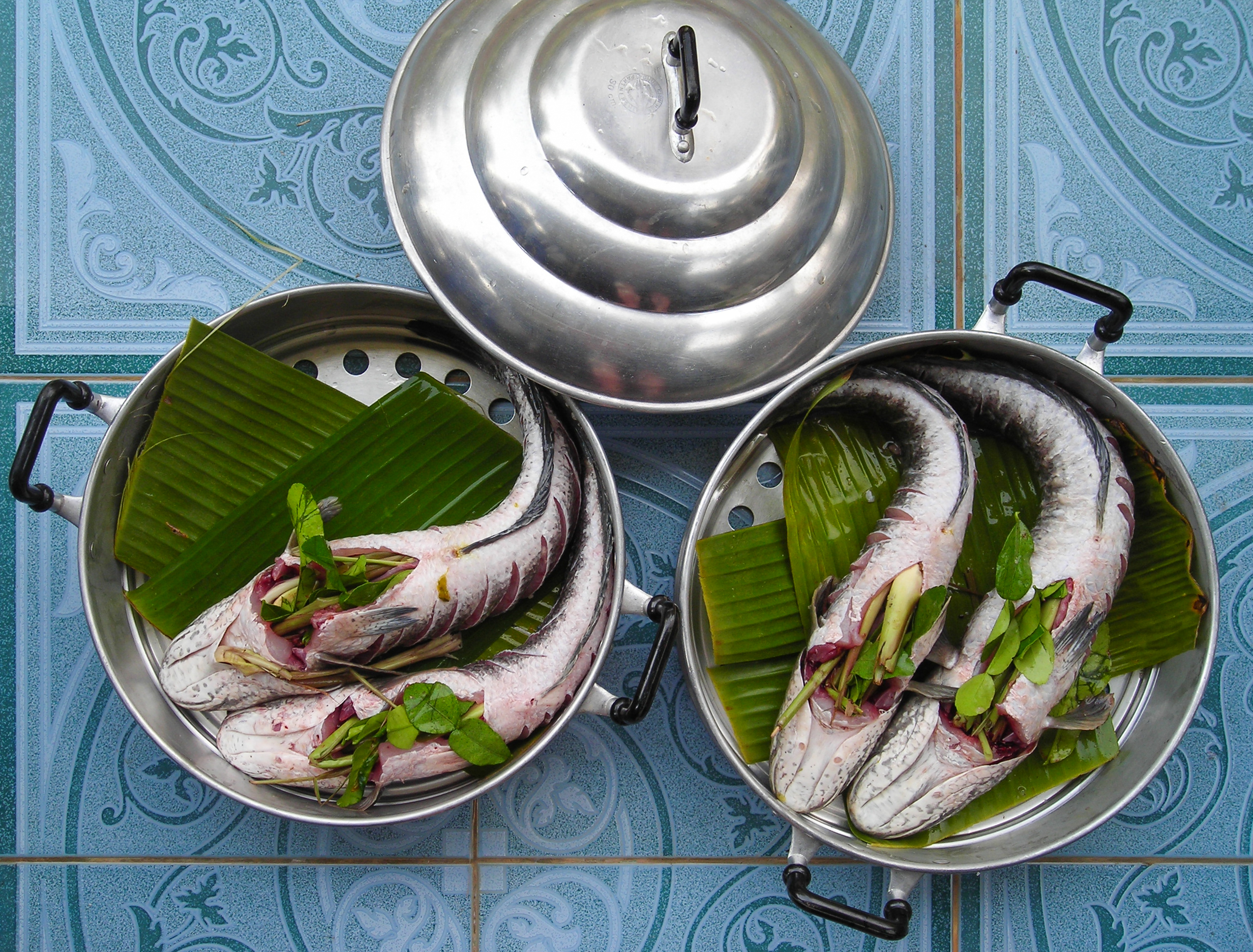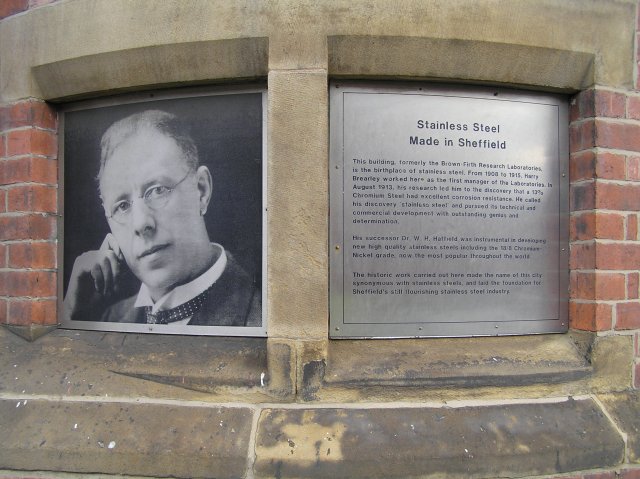|
Fish Slice
A modern fish slice A fish slice or metal spatula, in British English, is a kitchen tool with a wide, flat blade with long holes in it, used for lifting and turning food while cooking. In the US, it is regarded as a type of spatula and may be called a turner or flipper. It was originally a serving implement for fish, usually made of silver, antique examples of which commonly appear at auction. Fish slices were made of silver or Sheffield plate rather than steel to avoid the possibility of tainting the taste of the fish due to a reaction between the fish and its lemon seasoning and the steel. After 1745, their outlines were usually fish-shaped. The term now refers to an implement used for turning fish and other foods when frying them, available in many materials such as stainless steel. The Victoria and Albert Museum has an extensive collection of metalwork fish slices from Britain and the US and includes both contemporary and historical pieces. Manufacturers include functi ... [...More Info...] [...Related Items...] OR: [Wikipedia] [Google] [Baidu] |
Fish Slice 1814-15, W & S Knight, London
Fish are aquatic, craniate, gill-bearing animals that lack limbs with digits. Included in this definition are the living hagfish, lampreys, and cartilaginous and bony fish as well as various extinct related groups. Approximately 95% of living fish species are ray-finned fish, belonging to the class Actinopterygii, with around 99% of those being teleosts. The earliest organisms that can be classified as fish were soft-bodied chordates that first appeared during the Cambrian period. Although they lacked a true spine, they possessed notochords which allowed them to be more agile than their invertebrate counterparts. Fish would continue to evolve through the Paleozoic era, diversifying into a wide variety of forms. Many fish of the Paleozoic developed external armor that protected them from predators. The first fish with jaws appeared in the Silurian period, after which many (such as sharks) became formidable marine predators rather than just the prey of arthropods. Mos ... [...More Info...] [...Related Items...] OR: [Wikipedia] [Google] [Baidu] |
British English
British English (BrE, en-GB, or BE) is, according to Lexico, Oxford Dictionaries, "English language, English as used in Great Britain, as distinct from that used elsewhere". More narrowly, it can refer specifically to the English language in England, or, more broadly, to the collective dialects of English throughout the British Isles taken as a single umbrella variety, for instance additionally incorporating Scottish English, Welsh English, and Ulster English, Northern Irish English. Tom McArthur (linguist), Tom McArthur in the ''Oxford Guide to World English'' acknowledges that British English shares "all the ambiguities and tensions [with] the word 'British people, British' and as a result can be used and interpreted in two ways, more broadly or more narrowly, within a range of blurring and ambiguity". Variations exist in formal (both written and spoken) English in the United Kingdom. For example, the adjective ''wee'' is almost exclusively used in parts of Scotland, North E ... [...More Info...] [...Related Items...] OR: [Wikipedia] [Google] [Baidu] |
United States
The United States of America (U.S.A. or USA), commonly known as the United States (U.S. or US) or America, is a country primarily located in North America. It consists of 50 states, a federal district, five major unincorporated territories, nine Minor Outlying Islands, and 326 Indian reservations. The United States is also in free association with three Pacific Island sovereign states: the Federated States of Micronesia, the Marshall Islands, and the Republic of Palau. It is the world's third-largest country by both land and total area. It shares land borders with Canada to its north and with Mexico to its south and has maritime borders with the Bahamas, Cuba, Russia, and other nations. With a population of over 333 million, it is the most populous country in the Americas and the third most populous in the world. The national capital of the United States is Washington, D.C. and its most populous city and principal financial center is New York City. Paleo-Americ ... [...More Info...] [...Related Items...] OR: [Wikipedia] [Google] [Baidu] |
Spatula
A spatula is a broad, flat, flexible blade used to mix, spread and lift material including foods, drugs, plaster and paints. In medical applications, "spatula" may also be used synonymously with tongue depressor. The word ''spatula'' derives from the Latin word for a flat piece of wood or splint, a diminutive form of the Latin , meaning 'broadsword', and hence can also refer to a tongue depressor. The words ''spade'' (digging tool) and ''spathe'' are similarly derived. The word ''spatula'' has been used in English since 1525. Use Spatulas are usually used to scrape within the contours of a mixing bowl or to level off the top of a dry mixing cup. Kitchen use American English In American English, ''spatula'' refers broadly to a number of broad, flat utensils. The word commonly refers to a turner or flipper (known in British English as a ''fish slice''), used to lift and flip food items during cooking, such as pancakes and fillets. The blades on these are usually made of met ... [...More Info...] [...Related Items...] OR: [Wikipedia] [Google] [Baidu] |
Fish As Food
Many species of fish are caught by humans and consumed as food in virtually all regions around the world. Fish has been an important dietary source of protein and other nutrients throughout human history. The English language does not have a special culinary name for food prepared from fish like with other animals (as with ''pig'' vs. ''pork''), or as in other languages (such as Spanish ''pez'' vs. '' pescado''). In culinary and fishery contexts, ''fish'' may include so-called shellfish such as molluscs, crustaceans, and echinoderms; more expansively, seafood covers both fish and other marine life used as food. Since 1961, the average annual increase in global apparent food fish consumption (3.2 percent) has outpaced population growth (1.6 percent) and exceeded consumption of meat from all terrestrial animals, combined (2.8 percent) and individually (bovine, ovine, porcine, etc.), except poultry (4.9 percent). In ''per capita'' terms, food fish consumption has grown from ... [...More Info...] [...Related Items...] OR: [Wikipedia] [Google] [Baidu] |
Silver
Silver is a chemical element with the Symbol (chemistry), symbol Ag (from the Latin ', derived from the Proto-Indo-European wikt:Reconstruction:Proto-Indo-European/h₂erǵ-, ''h₂erǵ'': "shiny" or "white") and atomic number 47. A soft, white, lustrous transition metal, it exhibits the highest electrical conductivity, thermal conductivity, and reflectivity of any metal. The metal is found in the Earth's crust in the pure, free elemental form ("native silver"), as an alloy with gold and other metals, and in minerals such as argentite and chlorargyrite. Most silver is produced as a byproduct of copper, gold, lead, and zinc Refining (metallurgy), refining. Silver has long been valued as a precious metal. Silver metal is used in many bullion coins, sometimes bimetallism, alongside gold: while it is more abundant than gold, it is much less abundant as a native metal. Its purity is typically measured on a per-mille basis; a 94%-pure alloy is described as "0.940 fine". As one of th ... [...More Info...] [...Related Items...] OR: [Wikipedia] [Google] [Baidu] |
Sheffield Plate
Sheffield plate is a layered combination of silver and copper that was used for many years to produce a wide range of household articles. Almost every article made in sterling silver was also crafted by Sheffield makers, who used this manufacturing process to produce nearly identical wares at far less cost. History The material was accidentally invented by Thomas Boulsover, of Sheffield's Cutlers Company, in 1743. While trying to repair the handle of a customer's decorative knife, he heated it too much and the silver started to melt. When he examined the damaged handle, he noticed that the silver and copper had fused together very strongly. Experiments showed that the two metals behaved as one when he tried to reshape them, even though he could clearly see the two different layers. Boulsover set up in business, funded by Strelley Pegge of Beauchief, and carried out further experiments in which he put a thin sheet of silver on a thick ingot of copper and heated the two toget ... [...More Info...] [...Related Items...] OR: [Wikipedia] [Google] [Baidu] |
Fish
Fish are aquatic, craniate, gill-bearing animals that lack limbs with digits. Included in this definition are the living hagfish, lampreys, and cartilaginous and bony fish as well as various extinct related groups. Approximately 95% of living fish species are ray-finned fish, belonging to the class Actinopterygii, with around 99% of those being teleosts. The earliest organisms that can be classified as fish were soft-bodied chordates that first appeared during the Cambrian period. Although they lacked a true spine, they possessed notochords which allowed them to be more agile than their invertebrate counterparts. Fish would continue to evolve through the Paleozoic era, diversifying into a wide variety of forms. Many fish of the Paleozoic developed external armor that protected them from predators. The first fish with jaws appeared in the Silurian period, after which many (such as sharks) became formidable marine predators rather than just the prey of arthropods. Mos ... [...More Info...] [...Related Items...] OR: [Wikipedia] [Google] [Baidu] |
Stainless Steel
Stainless steel is an alloy of iron that is resistant to rusting and corrosion. It contains at least 11% chromium and may contain elements such as carbon, other nonmetals and metals to obtain other desired properties. Stainless steel's corrosion resistance, resistance to corrosion results from the chromium, which forms a Passivation (chemistry), passive film that can protect the material and self-healing material, self-heal in the presence of oxygen. The alloy's properties, such as luster and resistance to corrosion, are useful in many applications. Stainless steel can be rolled into Sheet metal, sheets, plates, bars, wire, and tubing. These can be used in cookware, cutlery, surgical instruments, major appliances, vehicles, construction material in large buildings, industrial equipment (e.g., in paper mills, chemical plants, water treatment), and storage tanks and tankers for chemicals and food products. The biological cleanability of stainless steel is superior to both alumi ... [...More Info...] [...Related Items...] OR: [Wikipedia] [Google] [Baidu] |
Victoria And Albert Museum
The Victoria and Albert Museum (often abbreviated as the V&A) in London is the world's largest museum of applied arts, decorative arts and design, housing a permanent collection of over 2.27 million objects. It was founded in 1852 and named after Queen Victoria and Prince Albert. The V&A is located in the Royal Borough of Kensington and Chelsea, in an area known as "Albertopolis" because of its association with Prince Albert, the Albert Memorial and the major cultural institutions with which he was associated. These include the Natural History Museum, the Science Museum, the Royal Albert Hall and Imperial College London. The museum is a non-departmental public body sponsored by the Department for Digital, Culture, Media and Sport. As with other national British museums, entrance is free. The V&A covers and 145 galleries. Its collection spans 5,000 years of art, from ancient times to the present day, from the cultures of Europe, North America, Asia and North Africa. Ho ... [...More Info...] [...Related Items...] OR: [Wikipedia] [Google] [Baidu] |
Metalworking
Metalworking is the process of shaping and reshaping metals to create useful objects, parts, assemblies, and large scale structures. As a term it covers a wide and diverse range of processes, skills, and tools for producing objects on every scale: from huge ships, buildings, and bridges down to precise engine parts and delicate jewelry. The historical roots of metalworking predate recorded history; its use spans cultures, civilizations and millennia. It has evolved from shaping soft, native metals like gold with simple hand tools, through the smelting of ores and hot forging of harder metals like iron, up to highly technical modern processes such as machining and welding. It has been used as an industry, a driver of trade, individual hobbies, and in the creation of art; it can be regarded as both a science and a craft. Modern metalworking processes, though diverse and specialized, can be categorized into one of three broad areas known as forming, cutting, or joining processes. Mo ... [...More Info...] [...Related Items...] OR: [Wikipedia] [Google] [Baidu] |








